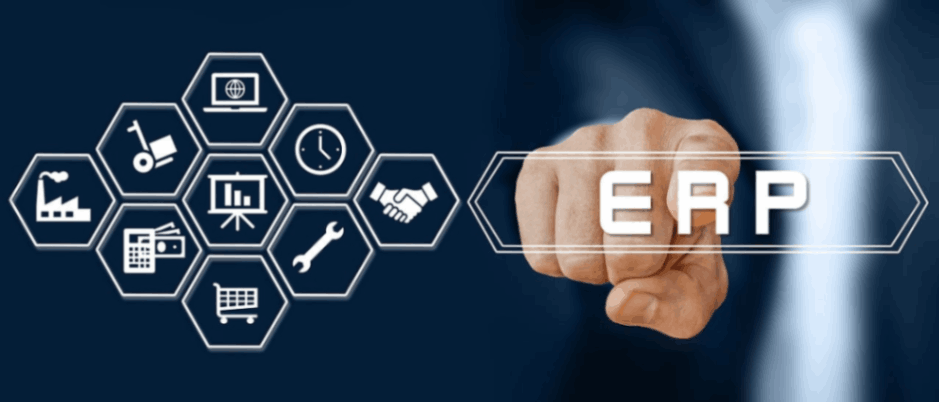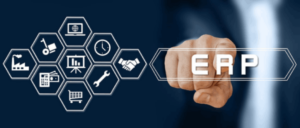
How to choose a good ERP: Types and key factors to consider
Essential factors when choosing an ERP
Choosing an ERP involves evaluating a number of critical factors to ensure that it aligns perfectly with your company’s needs and objectives. Here are some essential elements to consider:
Your company’s size and needs: Which ERP is best suited?
The first step in selecting the right ERP is to thoroughly understand the size and particularities of your company. Are you a growing small or medium-sized enterprise (SME) or a large consolidated corporation? Do you operate in a specific sector with particular requirements, such as manufacturing, distribution or professional services? Identifying these characteristics will help you define which type of ERP best suits your needs.
A growing SMB can benefit from an agile and easy-to-implement ERP, such as Holded or Sage 200, which offer basic but efficient functionalities to manage financial processes, inventory and customer relationships. On the other hand, a larger, more established company might need a robust and highly customizable ERP, such as Odoo or Microsoft Business Central, that allows deep integration with existing systems and complete management of all areas of the business.
Key functionalities to look for in an ERP system
When evaluating ERP options, it is critical to identify the key functionalities that are essential to optimize your business processes. Here is a list of some of the features you should look for when selecting an ERP:
- Inventory management: Ability to efficiently track and manage inventory, including product receiving, stock tracking and warehouse management.
- Financial accounting: Accounting modules to perform tasks such as recording transactions, generating financial reports, managing budgets and performing cost analysis.
- Sales management and CRM: Functionalities to manage the sales cycle, from lead generation to invoicing and customer follow-up. It is also important to have integrated CRM tools to manage customer relationships and improve customer satisfaction.
- Purchasing and suppliers: Capabilities to manage the purchasing process, from requesting quotations to issuing purchase orders and managing suppliers.
- Project management: Functionalities to plan, execute and control projects, allocate resources, track progress and manage budget.
- Reporting and analysis: Reporting and analysis tools that provide detailed information on business performance, enabling informed and strategic decisions.
- Integrations: Ability to integrate with other business tools and systems, such as human resource management (HRM) systems, customer relationship management (CRM) systems and e-commerce systems, to ensure seamless and seamless business management.
Integrate B2B ecommerce with your ERP with Stoam SaaS

Scalability and flexibility: Preparing your company for growth
The ability of an ERP to grow with your business is a crucial aspect to consider when making an implementation decision. Here are some important considerations about the scalability and flexibility of an ERP:
- Scalability: A scalable ERP is able to adapt to the growth of your company without compromising performance or functionality. This means that the system can handle an increase in the volume of transactions, users and data as your business grows. It is important to choose an ERP that can be easily scaled by adding additional modules, users or functions as needed.
- Flexibility: The flexibility of an ERP refers to its ability to adapt to changes in business processes and new business needs. A flexible system allows customization and configuration to meet your company’s specific requirements without the need to modify the source code. This allows you to adjust and optimize the ERP as your business operations and strategies evolve.
- Compatibility with standards and emerging technologies: Look for an ERP that is built on modern technologies and open standards that facilitate integration with other applications and systems. Also, make sure your ERP supports emerging technologies such as artificial intelligence (AI), machine learning and the Internet of Things (IoT), which can be critical to your company’s innovation and future growth.
- Support and services: The ERP vendor should offer strong technical support and consulting services to help you get the most out of the system and address challenges that arise during implementation and ongoing use. Make sure the provider has experience in supporting companies during their growth and evolution, and can offer solutions tailored to your specific needs over time.
By choosing a scalable and flexible ERP, you will be preparing your company for future growth and ensuring that your business management system can adapt and grow along with your business ambitions.
Vendor experience: What to look for in an ERP vendor?
Investigate the vendor’s track record, its history of successful implementations, the quality of its technical support and its commitment to innovation and continuous development. A reliable and experienced supplier can make all the difference in the implementation and long-term success of your ERP solution.
Exploring the types of ERP available
The ERP market is broad and diverse, offering a variety of solutions tailored to the specific needs of different companies. Let’s take a closer look at some of the most common types of ERP and how they apply to different business contexts:
Classification by business sector: Specialized approaches
ERPs can be designed to meet the particular needs of different industry sectors. For example, an ERP oriented to the manufacturing sector could offer specific modules for inventory management, quality control and production planning. On the other hand, an ERP focused on the service sector could include features such as project management and hourly billing.

Depending on installation and access: On-premise, in the cloud, multiplatform, etc.
The way an ERP is implemented and accessed can vary considerably. Traditional on-premise systems are installed on local servers and require maintenance and support by in-house staff. On the other hand, cloud-based ERPs offer remote access via the Internet and eliminate the need for local infrastructure. In addition, there are multi-platform solutions that allow access to the ERP from a variety of devices, providing additional flexibility to users.
Considerations according to company size
The size of the company is a determining factor in the selection of the right ERP. Small and medium-sized enterprises (SMEs) can opt for simpler and cheaper solutions, such as Odoo, which offer basic functionalities and are easier to implement. On the other hand, large corporations may require more complex and customized solutions that can adapt to complex and constantly evolving business environments.
Approach by type of development: Standard vs. customized
ERPs can be standard solutions, which offer a set of predefined and widely used functionalities, or customized solutions, which can be tailored to meet a company’s specific needs. For example, a standard ERP such as Sage 200 provides general accounting and financial management features, while a custom ERP developed by specialized consulting firms can be tightly integrated with a company’s existing processes and systems to provide customized and highly efficient solutions.
ERP options to consider
When selecting an ERP for your company, it is essential to carefully examine the different options available in the market. In the following, we will analyze some of the main ERP solutions and their distinctive features:
Transform your ERP into a powerful B2B ecommerce solution
Holded: Integrated solutions for e-commerce and B2B companies
Holded is a business management platform that offers a comprehensive solution for e-commerce and B2B companies. Key features include:
- Sales and purchase management: allows easy management of sales and purchase transactions, as well as inventory tracking.
- E-commerce integration: offers integrations with popular e-commerce platforms, such as Shopify and WooCommerce, for unified order and product management.
- Accounting and finance: provides tools for billing, accounting and financial control management.
- CRM: includes features for customer relationship management, lead tracking and sales process automation.
Holded stands out for its intuitive interface and its ability to adapt to the specific needs of growing e-commerce and B2B companies.
Sage 200: Complete business management for growing companies
Sage 200 is a complete business management solution designed for growing companies. Some of its outstanding features are:
- Financial management: offers functionalities for accounting, payment management, budgeting and financial forecasting.
- Inventory management: allows detailed inventory tracking, optimizing stock levels and reducing costs.
- Project management: facilitates project planning, monitoring and control, as well as resource allocation.
- Business Intelligence: provides data analysis tools to make decisions based on accurate and up-to-date information.
Sage 200 is a solid choice for companies looking for a complete and scalable solution to manage all aspects of their business.
Odoo: Modular and customizable enterprise application suite
Odoo is a modular and highly customizable enterprise application suite covering a wide range of functional areas. Features include:
- Modularity: allows companies to select and customize the applications that best suit their needs, from CRM and sales to warehouse management and human resources.
- Customization: offers a flexible architecture that allows users to easily adapt applications to specific business processes.
- Integrations: it has a wide variety of integrations with other tools and services, making it easy to connect with existing systems.
- Active community: it has a large community of developers and users who contribute additional modules and share knowledge and experiences.
Business Central Microsoft: Cloud-based ERP solution for SMBs
Business Central is a cloud-based ERP solution developed by Microsoft, designed specifically for small and medium-sized businesses (SMBs). Some of its key features are:
- Financial management: includes functionalities for accounting, cash management, budgeting and financial analysis.
- Sales and customer service management: allows you to manage sales opportunities, customer orders, contracts and after-sales services.
- Inventory management: facilitates real-time inventory tracking and management, optimizing stock levels and reducing storage costs.
- Integration with Microsoft 365: Seamlessly integrates with other Microsoft productivity tools, such as Outlook, Excel and Power BI, for efficient collaboration and advanced data analysis.
Frequently Asked Questions
The most common type of ERP on the market is one that is offered as a cloud-based system. These cloud-based ERPs are popular because of their accessibility, scalability and ease of implementation. In addition, they often offer automatic upgrades and lower initial cost compared to on-premise ERP systems.
ERP can be integrated with a variety of other programs and systems used in a company. Some common integrations include connection with customer relationship management (CRM) software, warehouse management software (WMS), human resource management systems (HRMS), supply chain management systems (SCM), data analysis tools and more. These integrations enable seamless communication between different systems and increase the company’s operational efficiency.
The choice of ERP can have a significant impact on business growth. A properly selected and well-implemented ERP can improve operational efficiency, increase productivity, facilitate data-driven decision making and promote cross-departmental collaboration. All this contributes to a faster and more sustainable growth of the company. On the other hand, an incorrect ERP choice or poor implementation can result in additional costs, operational disruptions and obstacles to growth. Therefore, it is important to conduct a thorough assessment of the company’s needs and select an ERP that is properly aligned with its objectives and growth strategies.
Share:
Related Articles

How to choose the best ERP: Types and key factors to consider
How to choose a good ERP: Types and key factors to consider Essential factors when choosing an ERP Choosing an ERP involves evaluating a number of critical factors to ensure that it aligns perfectly with your company’s needs and objectives.
